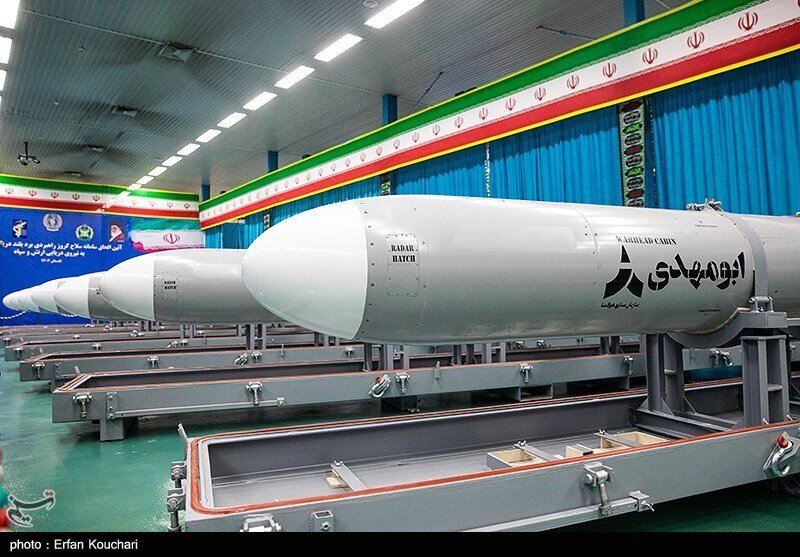Israel's uncharted waters: Can it weather an Iranian storm?

TEHRAN - Many people in Israel have not been able to sleep a wink for more than a week amid fears of a large-scale retaliatory attack by Iran and regional resistance groups.
Since Israel assassinated Hamas political leader Ismail Haniyeh on July 31, Iran and the Axis of Resistance, which includes Lebanon’s Hezbollah, Yemen’s Ansarullah, the Islamic Resistance in Iraq as well as resistance movements in Gaza have vowed revenge.
Haniyeh was killed in an Israeli strike in the Iranian capital. He had traveled to Tehran to attend the swearing-in ceremony of President Masoud Pezeshkian.
The regime of Prime Minister Benjamin Netanyahu has neither confirmed nor denied its role in the assassination of the Hamas political chief. However, Tel Aviv has told Washington after the attack that it was responsible.
Israeli public and officials are now like a cat on hot bricks amid uncertainty over the timing of the response to Haniyeh’s murder.
Iran has promised a severe response to punish Israel.
On April 13, Iran launched a salvo of more than 300 drones and missiles at Israel. The Islamic Revolution Guard Corps (IRGC) dubbed the operation “True Promise”.
It came after several Iranian military advisors including a top commander were assassinated in the wake of an Israeli strike against Iran’s consulate in the Syrian capital Damascus on April 1st.
Israel’s vulnerability
At that time, Israel’s Western and West Asia allies aided Israel in dealing with the Iranian strike.
The Washington Post published a report on Friday raising serious doubts about whether Israel would be prepared for a new Iranian attack like the one it conducted in April.
Citing analysts, the report said Israel is more isolated in the region compared with four months ago which could make the regime more vulnerable.
The American newspaper said there are fears that, even with the US support, Israel’s aerial defense systems may not be able to fully counter a massive, coordinated attack by Iran and the regional resistance movements.
The Post also highlighted the uncertainty surrounding whether certain Arab countries will come to Israel’s aid in the event of such an attack.
It admitted that Saudi Arabia, the UAE and Jordan helped Israel when Iran carried out “True Promise”. The report, however, said Arab states have publicly sought to distance themselves from any involvement in a new round of operation against Israel by Iran.
It cited the Arab states’ fear of retaliation from Iran and public fury over the high human toll of the Gaza war. Israel has slaughtered about 39,700 Palestinians in Gaza since launching war on the territory on October 7, 2023. Palestinians and pro-Palestine groups have denounced certain Arab states over their refusal to sever ties with Israel amid the regime’s genocidal war on Gaza.
Further in its report, the Post touched upon Israel’s vulnerability in the face of a large-scale attack by Lebanon’s Hezbollah.
Pointing to comments made by weapons experts, it acknowledged that Hezbollah drones could pose a significant danger to Israel’s aerial defense systems, if unleashed in large numbers.
Yoel Guzansky, a former official on Israel’s National Security Council who is now a senior researcher at the Institute for National Security Studies in Tel Aviv, told the Washington Post that a worst-case scenario would be a multi-front attack from other regional resistance
groups designed to “challenge the limits of Israel’s systems, which can be overwhelmed … and which, as seen in April, rely on the regional coalition for strategic depth.”
Israel’s miscalculations
The New York Times said in April that “True Promise” was conducted in the wake of Israel’s miscalculations. It said at that time that Israel thought Iran would not react strongly to the assassination of its military advisors in Syria.
Israel made another miscalculation when it decided to kill Haniyeh in Tehran.
More than 10 months have passed since Israel launched its onslaught on Gaza. But it has failed to deliver on its promises which mainly include the elimination of Hamas and returning the remaining captives held in Gaza.
In fact, Israel has achieved none of its goals. Hence, the Netanyahu regime is seeking to create the impression that it has made gains to paper over its military failures.
However, such a false impression will cost Israel dear. Israel will have to pay a heavy price for its miscalculations, warmongering policy and unspeakable crimes in Gaza. It is just a matter of time!
Leave a Comment